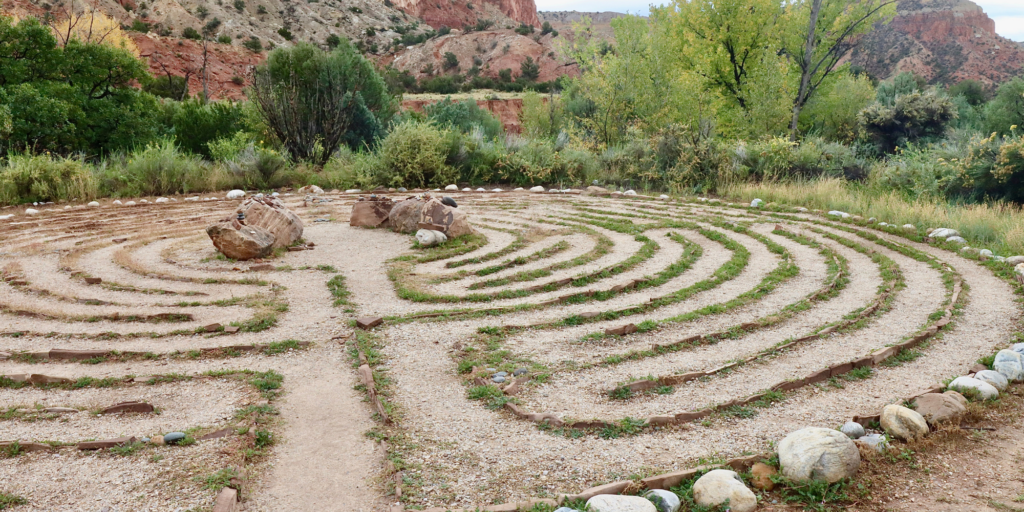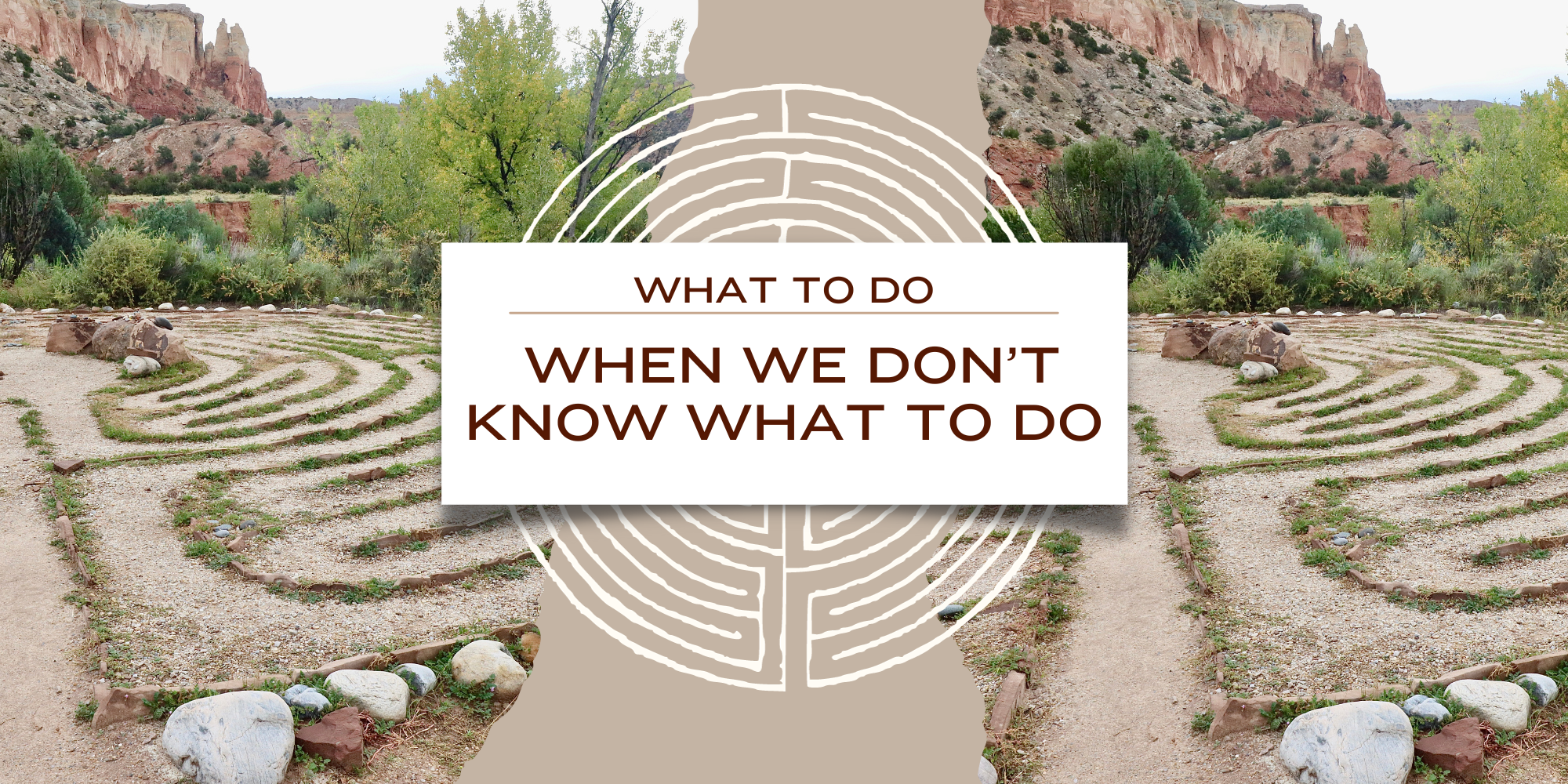It’s evident that faith communities and their leaders, clergy and laity, face daunting challenges, so daunting that we sometimes don’t know what to do. Adaptive conversations can move us toward creative and constructive responses to uncertainty.
To spark those conversations, I sometimes ask congregations to play and pray with some “R-words,” words like remembering, revisioning, recentering, renewing, reforming, restoring, and remaking. I sometimes pull the prefix “Re,” a space away from the rest of the word, and let layers of meaning emerge. For instance:
Re-Membering: to have scattered or broken members of a body made whole or to have the misplaced elements of a story brought back to vivid awareness. How do we attend to the spiritual and emotional healing that individuals and faith communities need in the wake of multiple losses, traumas, and disillusionments? How do we experience again the scope, sweep, and saving power of the Story of God’s tender and tenacious love?
Re-Visioning: to look again and see anew. How can we notice both the continuities and changes—the enduring values and shifting circumstances—of the places and people we serve? What does this noticing mean for our understanding of vision and mission here and now?
Re-Centering: to put the compelling “whys” and the essential “what” back in the orienting, guiding, and governing position; and, for churches, especially, to be sure that everything finds its source and goal in Jesus. How do we ensure that tradition, programs, projects, and careers serve the center rather than become the center?
These words generate ideas and images that invite congregations and their leaders into ongoing conversations about callings and roles, mission and methods, effectiveness, and evaluation. These conversations should, I think, occasionally include voices from beyond the congregation, the voices of people who are affected by or curious about the church’s life and ministry. It’s especially crucial to welcome voices from outside the church when a congregation wants to see its context afresh.
These kinds of conversations will be primarily adaptive in nature; that is, they will address questions more than answer them, will acknowledge that we don’t yet know how to frame some of the challenges we face, and will have mutual learning and shared discovery as their purpose. They will be grounded in commitments to vulnerability, discernment, and the guidance of the Spirit. Over time, they will yield wisdom, give direction, and generate energy. It would be life-giving and burden-sharing for congregational leaders to convene and facilitate regular conversations like these. They are one of the best ways I know to get free from the paralysis of not knowing what to do.
Of course, while these open-ended, open-hearted, and open-minded conversations are happening, the often-blisteringly busy pace of church life continues. Each day feels like a Sunday or a Wednesday. There are parent-child dedications, funerals, weddings, retreats, and mission trips. The meetings seem endless: committees, task forces, teams, councils, and deacons. Budgets have to be finalized, and commitments to supporting them have to be sought. The church year unfolds, and, as the soon-beginning seasons of Advent and Christmas remind us, crowds our calendars with preparations and celebrations. There’s a lot to do even when we don’t know what to do.

Since the rhythms and demands of church life don’t stop while adaptive conversations take place, we need to focus on the things that are most crucial for the church’s identity and witness: worship, engagement in formation and transformation, caring for one another, and working for justice among, and showing mercy to, the vulnerable, victimized, and marginalized. For as long as there have been congregations, versions of these practices have been vital to their existence. These are the things we have to do—and get to do—to sustain the health and witness of the church in season and out of season. For this article, I elaborate briefly only on the first two.
Worship is first and central. As we offer our prayers and praises to God and hear the Living Word speak to us, we recall that our essential identity is as beloved children of God, not strangers, workers, producers, or consumers. We are followers and friends of Jesus. We are partners with God in justice, peace, reconciliation, and healing. We reaffirm that Jesus is Lord, not a political or governmental leader, and that the church serves first and preeminently the Reign of God, not a national entity nor an ideology of ethnic supremacy. We experience the joy of worship as a festival, a foretaste of the new and healed world God is making. It’s hard to imagine how anything could matter more.
We engage in formation and transformation by loving God with our minds through thoughtful study of the Scriptures, of the ways Christians have lived—faithfully and falteringly—throughout history, and of the cultures of which we are a part. We love God with our hearts through practices of silence, prayer, contemplation, and meditation. We love God with our strength by loving and serving one another and our neighbors. Our purpose, hope, and yearning are to become increasingly like Jesus, which, as best I know, is to become more fully our honest-to-God selves.
Fifty years ago, Ernest Campbell, then the preaching minister of the Riverside Church in NYC, published Where Cross the Crowded Ways: Prayers of a City Pastor. In the preface, he noted that when ministers want to “invigorate the parish,” they “schedule the unusual,” often “a special extravaganza.” Campbell said: “It is wiser, I believe, to energize the usual than to schedule the unusual.” He claimed that “the ordinary over the years has proved more useful to God than the spectacular.” My only quibble with Campbell is the ordinary things we do, day in and day out, year in and year out, in seasons of knowing and not knowing. are from ordinary. They are how our extraordinary and surprising God meets us again and again.

Your words always touch my heart.